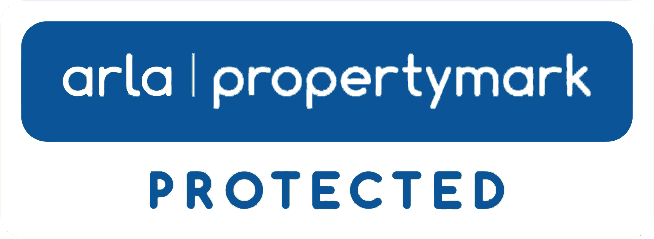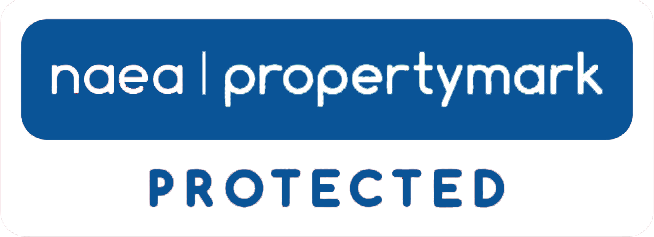
Private rentals accounted for 4.7 million or 20% of households in England in 2016/17, more than doubling in number since 2002 (Ministry of Housing, Communities & Local Government, July 2018).
Being a tenant is widely accepted as a viable alternative to home ownership, particularly among those who may not yet be willing or able to consider buying a permanent home. Renting a property should be an enjoyable experience and for those who are new to the process this renting guide from OnTheMarket.com will explain what to look out for with these nine renting property tips.
1. Preparing your finances
Decide how much you can reasonably afford to pay in rent each month. Take into account your general costs of living and the fact that you will be paying Council Tax as well as fuel bills, contents insurance, TV licence and broadband. In addition, you will need to budget at least six weeks’ rent as the amount to be put down as security deposit for the length of the tenancy.
2. Finding a suitable property to rent
Search for properties in areas that you want to live in. You’ll be able to filter the results by the amount of rent and the accommodation so that you can create a shortlist of potentials to go and look at. Remember that the rental market is usually fast-moving and that good properties in popular areas don’t stay on the market for very long. If you see something that may suit your needs, get your skates on and quickly go and see it. Get in touch with local letting agents (you’ll find many of them on OnTheMarket.com) and register to receive alerts when new places come available. Many letting agents belong to industry bodies such as the ARLA Propertymark (formally the Association of Residential Lettings Agents) or the National Approved Letting Scheme (NALS). This can provide some peace of mind to tenants that they will be dealt with in a professional manner.
3. Asking questions
When you find a property that you would like to rent, you will most probably have read about it online or in an agent’s printed details. You will have seen only basic information, so if there is anything that is unclear or not stated don’t be afraid to ask questions. For example, check who is responsible for maintaining the garden, and whether there are any restrictions concerning pets or smoking in the premises. If you clear such questions at the earliest stage you won’t waste money applying to rent an unsuitable property. Don’t hesitate to ask the letting agent for a list of all the charges that you may incur throughout the process of applying to rent the property.
4. The tenancy agreement
Assuming you pass the checks and referencing process, the agent will draw up an Assured Shorthold Tenancy agreement (see the OnTheMarket.com “Jargon buster”) for signing by you and the landlord. Read the agreement very carefully before signing and if you are unsure of anything don’t hesitate to ask for clarification. The tenancy agreement is a legal document and binds you and the landlord to the terms within it. Make sure they are in accordance with your understanding.
5. The deposit
You will be required to pay a security deposit that will be held by the agent on behalf of the landlord for the duration of the tenancy. Its purpose is to provide the landlord with compensation if you damage the property or its contents. Fair wear and tear is excluded from these dilapidations (see the OnTheMarket.com “Jargon buster”). All deposits in assured shorthold tenancies must be registered with one of the government-approved tenancy deposit schemes that guarantees no-one can run off with the money. The deposit scheme will also provide a dispute resolution service if, at the end of the tenancy, you cannot agree the amount charged by the landlord or their agent for the dilapidations.
TDS has launched a Code of Recommended Practice. This Code of Practice sets out the recommended requirements which letting agents and landlords should meet and JW Wood is a member of the Tenancy Deposit Scheme (TDS).
6. Inventories
Even if the property is being let unfurnished, it is really important to have a properly prepared and comprehensively detailed inventory, which is carefully reviewed and signed by tenant and landlord. It will list any existing faults in the property such as areas of damaged decoration, marks on carpets or chips in bath enamel. This ensures that when the dilapidations are assessed at the end of the tenancy you will not be charged for those that were in the property when you took it over. A good inventory will include photographs of such faults.
7. Paying the rent
You will probably be paying the monthly rent by standing order to the landlord or their agent. Always ensure that rent is paid on time and in full. Non-payment of rent is a serious matter that can end up in court. If there is any problem with the property, do not withhold payment of the rent. Such an action is guaranteed to make resolution all the more difficult and puts you in breach of the terms of the tenancy agreement. It can also show up in future referencing checks and might cause problems if you come to rent another property.
8. At the end of the tenancy
When the tenancy period is nearing its end, you can ask if the landlord will agree to renew the tenancy (the amount of the rent may change and there may be some administration charges to pay) or you can leave the property. Arrange to move out by the agreed time on the agreed day. Make sure the property is clean and tidy and in at least the same condition as when you moved in. On the moving day, the inventory should be checked at the property by the landlord or their agent, with you in attendance, and it should be signed off by you as correct before you vacate. Take a note of the meter readings for gas and electricity and apply for final billing. Don’t forget to arrange with Royal Mail to redirect mail to your new address (ensure the redirection is specifically for mail in your name).
9. Repaying your deposit
Shortly after you move out, you will receive an account from the landlord or their agent detailing the charges for dilapidations, if any, that you agreed when the inventory was reviewed during the check-out. Providing you agree the amounts, the balance of your deposit should be returned without delay.
Content provided by OnTheMarket.com is for information purposes only. Independent and professional advice should be taken before buying, selling, letting or renting property, or buying financial products








